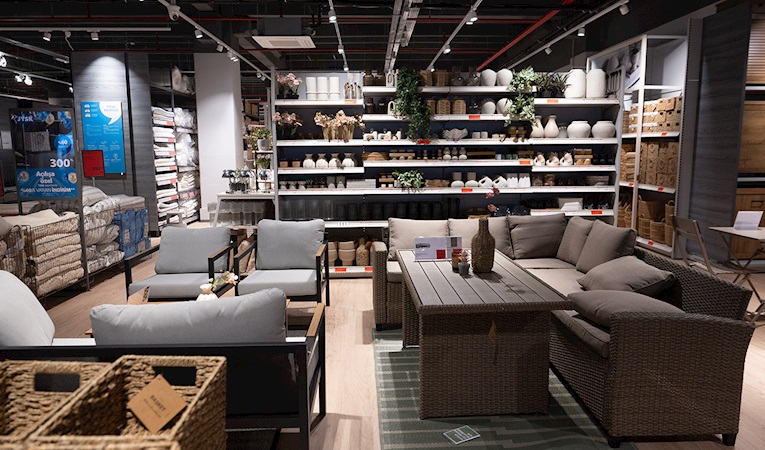
-
BIST 100
 11150,90%-1,27En Düşük11150,90En Yüksek11324,76
11150,90%-1,27En Düşük11150,90En Yüksek11324,76 -
DOLAR
 42,94%0,03Alış42,9358Satış42,9458En Yüksek42,9425
42,94%0,03Alış42,9358Satış42,9458En Yüksek42,9425 -
EURO
 50,55%-0,04Alış50,5507Satış50,5537En Yüksek50,6100
50,55%-0,04Alış50,5507Satış50,5537En Yüksek50,6100 -
EUR/USD
 1,18%0,02Alış1,1772Satış1,1773En Yüksek1,1777
1,18%0,02Alış1,1772Satış1,1773En Yüksek1,1777 -
ALTIN
 5980,86%-0,04Alış5980,17Satış5981,56En Yüksek6001,53
5980,86%-0,04Alış5980,17Satış5981,56En Yüksek6001,53
-
BIST 100
 11150,90%-1,27En Düşük11150,90En Yüksek11324,76
11150,90%-1,27En Düşük11150,90En Yüksek11324,76 -
DOLAR
 42,94%0,03Alış42,9358Satış42,9458En Yüksek42,9425
42,94%0,03Alış42,9358Satış42,9458En Yüksek42,9425 -
EURO
 50,55%-0,04Alış50,5507Satış50,5537En Yüksek50,6100
50,55%-0,04Alış50,5507Satış50,5537En Yüksek50,6100 -
EUR/USD
 1,18%0,02Alış1,1772Satış1,1773En Yüksek1,1777
1,18%0,02Alış1,1772Satış1,1773En Yüksek1,1777 -
ALTIN
 5980,86%-0,04Alış5980,17Satış5981,56En Yüksek6001,53
5980,86%-0,04Alış5980,17Satış5981,56En Yüksek6001,53
- Anasayfa
- Haberler
- Tüm Haberler
- Now The Trend Is For “Zero Stocks”
Now The Trend Is For “Zero Stocks”
In the past, large stocks meant “profit”. Since 2000, stocks have been regarded as creating costs. Today, uncertainty and the global crisis have meant that companies are looking to “zero stocks”. T...
In the past, large stocks meant “profit”. Since 2000, stocks have been regarded as creating costs. Today, uncertainty and the global crisis have meant that companies are looking to “zero stocks”. Two companies which have succeeded in this are Otokar and Erdemir. Those who have not succeeded are looking to rapidly minimize their stocks. In the construction materials sector, production for stock has fallen from 60 percent to 40 percent. In furniture, the average stock level is 20 percent and continuing to fall. The pharmaceuticals and cleaning goods sectors are manufacturing according to estimated sales.
“In the past, high inflation led to many companies overlooking erroneous practices. High stock levels, increasing inputs and product prices even created opportunities for companies. But the situation in which companies find themselves today means that they have to produce according to their estimates of likely demand. If not, they soon find that they are faced with high costs.”
These are the words of Yaşar Holding Finance Director Ufuk Tezer. They accurately sum up the changes in understanding during the 2000s and the resultant impact on stock management. This is not the only reason. Uncertainty stemming from crises and political turbulence are also increasing the importance of stock management
Companies Turning To “Just In Time”
Producers in different sectors, from furniture to automotives, iron and steel and fast-moving consumer goods, are giving even more importance than ever to stock management to ensure that they are not left with products on their hands. The general trend is away from production for stock to an order-based, “just in time”, production strategy. For example, the companies that do not work with stocks include Otokar and Erdemir. Both prefer production based on orders.
In the furniture sector, where stocks average the equivalent of 15-20 percent of production, the trend is towards doing business with “zero stocks”. “The tendency in the sector is to work without any stocks. I mean, production is completely based on sales,” says Çilek Mobilya General Manager Muzaffer Çilek, who stresses that the optimum stock levels are those which are large enough to absorb fluctuations.
It is still profitable to keep stocks of imported semi-finished goods. The reason is the low exchange rate. As a result, companies aim to minimize the negative consequences of periods of uncertainty by holding stocks of semi-finished goods rather than the final product. They can thus attempt to balance stock costs and meet orders without any interruption.
Yasemin Erdogan
[email protected]
Türkiye ve dünya ekonomisine yön veren gelişmeleri yorulmadan takip edebilmek için her yeni güne haber bültenimiz “Sabah Kahvesi” ile başlamak ister misiniz?






